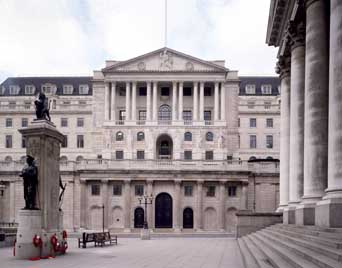The state pension could be in line for a record increase under the triple lock mechanism, after rising food prices pushed inflation rates back into the double digits.
The latest figures from the Office for National Statistics revealed that the Consumer Prices Index (CPI) increased by 10.1 per cent in the 12 months to September 2022, meaning that pensioners would be in store for a record increase under the state pension triple lock.
Under the triple lock mechanism, the new full flat-rate state pension is expected to increase from £185.15 per week to £203.85 per week from April 2023, while the basic state pension will increase from £141.85 per week to £156.20 per week.
While this is perhaps welcome news to pensioners, Canada Life technical director, Andrew Tully, noted that the potential record-breaking increase might present a challenge for the new Chancellor, Jeremy Hunt, who faces a "monumental task in trying to balance the books".
Indeed, estimates from the Office for Budget Responsibility have suggested that each 1 percentage point increase will cost the government an additional £1bn per year, meaning that retaining the triple lock would bring an additional cost of around £10bn next year,
Industry experts had suggested that the Chancellor may instead increase the state pension in line with average earnings growth, which would represent a 5.5 per cent increase.
This would mean that the full-flat rate state pension would rise to £195.35 per week, £442 per year less than the inflation-linked increase, while the basic state pension would only rise to £149.65 per week, £340.60 less per year compared to an inflation-linked increase.
Barnett Waddingham self-invested technical specialist, James Jones-Tinsley, warned that this could leave the government “trapped between a rock and a hard place”, with the government left to choose “between their fiscal principles, and their political survival”.
However, the government has today (19 October) reiterated its commitment to the triple lock, with Prime Minsiter, Liz Truss, confirming plans to retain the triple lock in the House of Commons.
Commenting prior to this commitment, AJ Bell head of retirement policy, Tom Selby, noted that in addition to political tensions, there is also the issue of intergenerational fairness to contend with, something which would be exacerbated even further if state pensions rise by inflation but working-age benefits are hit with a real-terms cut.
Indeed, previous research from Canada Life revealed that while there was broad support to retain the triple lock, there is a significant generational divide in opinion.
In addition to this, Selby noted that the difference this decision will make to people's
state pension incomes will be "massive", warning that this amount of money could make a real difference to pensioners quality of life, particularly over the winter months.
Adding to this, Hargreaves Lansdown senior pensions and retirement analyst, Helen Morrissey, argued that denying the increase would come "as a bitter blow to the many pensioners who rely on state pension as the foundation of their retirement income".
"Many of them will have been under severe financial pressure in recent months as inflation pushed their essential bills ever skyward," she continued, noting that their difficulties will have been compounded following the triple lock's suspension last year.
However, Wesleyan Financial Services director, Linda Wallace, warned that the triple lock increases could also cause unforeseen issues.
"The way the system currently works means that during times of rapidly increasing inflation, some professionals will find their pension growth causes them to unexpectedly fall foul of the annual allowance limit, resulting in eye-wateringly large tax bills," she explained.
“The new Chancellor is facing a myriad of challenges, not least in reassuring markets. But he’s also inherited an imperfect public pensions system with punitive tax charges.
"We’d urge him to take a serious look at public sector pension schemes and quickly fix the antiquated rules around pension contributions which are acting as a deterrent for some senior staff to take on extra shifts and impacting front-line services.”
Indeed, Jones-Tinsley also argued that "a brave move would be a pensions overhaul; a drastic new plan to tackle the retirement crisis, with a simpler system and fairer outcomes".
"Pensions rarely makes it to the top of the political agenda, but now, more than ever, is the time for radical reform," he added.
Latest News
-
OBR analysis reveals potential impact of salary sacrifice changes
-
Strong funding levels continue as endgame landscape reshaped by innovation
-
Harwich Haven Authority Pension Fund finalises £45m buy-in with Royal London
-
GAD publishes LGPS gender pension gap reporting guidance
-
DB scheme funding levels continue to improve heading into 2026
-
News in brief - 6 February 2026
Private markets – a growing presence within UK DC
Laura Blows discusses the role of private market investment within DC schemes with Aviva Director of Investments, Maiyuresh Rajah
The DB pension landscape
Pensions Age speaks to BlackRock managing director and head of its DB relationship management team, Andrew Reid, about the DB pensions landscape
Podcast: From pension pot to flexible income for life

Podcast: Who matters most in pensions?

In the latest Pensions Age podcast, Francesca Fabrizi speaks to Capita Pension Solutions global practice leader & chief revenue officer, Stuart Heatley, about who matters most in pensions and how to best meet their needs
© 2019 Perspective Publishing Privacy & Cookies









Recent Stories